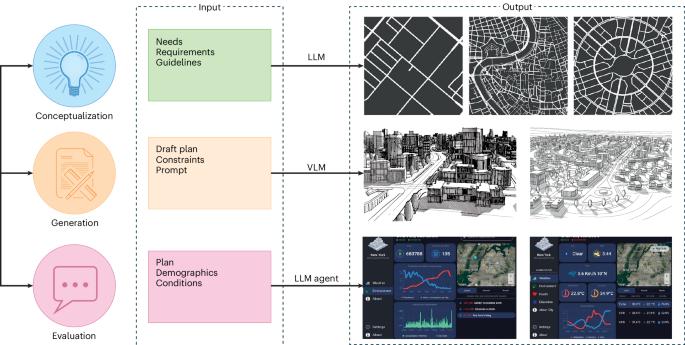Urban planning in the era of large language models
IF 18.3
Q1 COMPUTER SCIENCE, INTERDISCIPLINARY APPLICATIONS
引用次数: 0
Abstract
City plans are the product of integrating human creativity with emerging technologies, which continuously evolve and reshape urban morphology and environments. Here we argue that large language models hold large untapped potential in addressing the growing complexities of urban planning and enabling a more holistic, innovative and responsive approach to city design. By harnessing their advanced generation and simulation capabilities, large language models can contribute as an intelligent assistant for human planners in synthesizing conceptual ideas, generating urban designs and evaluating the outcomes of planning efforts. Large language models remain largely unexplored is the design of cities. In this Perspective, the authors discuss the potential opportunities brought by these models in assisting urban planning.

大语言时代的城市规划模型。
城市规划是人类创造力与新兴技术相结合的产物,这些技术不断发展和重塑城市形态和环境。在这里,我们认为大型语言模型在解决日益复杂的城市规划和实现更全面、创新和响应的城市设计方法方面具有巨大的未开发潜力。通过利用其先进的生成和模拟能力,大型语言模型可以作为人类规划者的智能助手,在综合概念想法、生成城市设计和评估规划工作的结果方面做出贡献。
本文章由计算机程序翻译,如有差异,请以英文原文为准。
求助全文
约1分钟内获得全文
求助全文

 求助内容:
求助内容: 应助结果提醒方式:
应助结果提醒方式:


